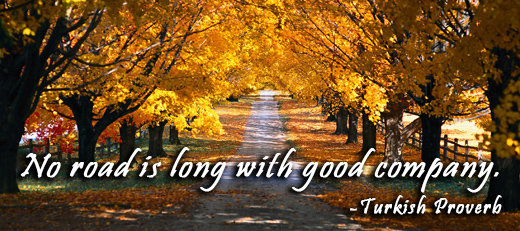Relationships
Are they lifting your spirits up or dragging you down?
February 2014 Insights
What better month to write about the importance of cultivating healthy relationships than February, the month we celebrate Valentines Day. The quality of our personal relationships has an enormous impact on our mental, emotional and physical well-being. Think about it, unless you are shipwrecked on a deserted island, most of us are involved in numerous types of relationships. These relationships may include romantic, friends, parents, children, siblings, coworkers, neighbors, mentors/teachers and of course the often forgotten about relationship with ourselves.
How we chose to experience our relationships can determine our level of happiness. Yet many of us never stop to consider whether as a whole our relationships lift our spirits up or drag us down. I’d like to take some time in this Month’s Key’s to Success Insights and identify those qualities that typically make up a healthy relationship while also make some suggestions on how to better manage those relationships that drain us.
 Of course, understandably everyone’s relationships are unique, and people come together for many different reasons. But ever wonder why some relationships are more effective than others? Researchers have learned a lot in the last 30 years about what makes a good relationship tick, and I believe it really just boils down to three main elements.
Of course, understandably everyone’s relationships are unique, and people come together for many different reasons. But ever wonder why some relationships are more effective than others? Researchers have learned a lot in the last 30 years about what makes a good relationship tick, and I believe it really just boils down to three main elements.
Elements to Cultivating a Heathy Relationship
- Mental Well-Being– The mental health of all parties involved is the most important component to a heathy relationship. This is not to say that those who suffer from depression, anxiety, insecurity or low-self-esteem cannot be in good relationships. What is essential, is for each party to be responsible for managing their own “stuff” and not impose it on the other nor expect them to “fix” their problems. This requires a certain level of self-awareness and an understanding that relationships should enhance our lives not limit or impede our ability to experience life fully.
- Communication-Requires not only the skill of effectively expressing oneself but the skill of learning how to truly listen to others. Honest, direct communication is a key part of any thriving relationship. When both parties can integrate the expression of their feelings while considering the other party’s perspective, a greater bond will occur. But remember effective communication skills are not a given they must be practiced and learned. Seek assistance, whether it be through books, enrichment courses, coaching or counseling. There’s plenty of guidance out there.
- Commitment– All relationships require attention and effort. There must be a certain level of understanding that flourishing relationships require a commitment. Having a healthy relationship just doesn’t come automatically or naturally, it requires work. Keep in mind all relationships inevitably have conflicts and challenges, this does not mean you are in an unhealthy relationship. Don’t be too quick to dismiss a relationship just because you experience a “rough patch”. All relationships warrant careful consideration and time to cultivate.
Unfortunately, having only healthy relationships in our lives is not likely. Unless you live in a bubble, no one is excluded from the experience of a negative relationship. Whether these draining relationships happen to be with family and other significant people in your life or mere acquaintances, how you manage them is YOUR choice. Here I share five ways to manage those draining relationships.
Managing Negative Relationships
Based on the Energy Leadership Development System
2006-2010 iPEC Coaching
- Remain a victim to it– Continue to allow this relationship to drain you. This may include feelings of loss of control, powerlessness, uncontrolled anger, grief and depression.
- Change it– Recognize that you can take proactive action to change the relationship, or some aspect of the relationship so that you can remain in the relationship and benefit from it. For example that may include releasing and reconciling differences or developing coping mechanisms that enables the relationship to continue on, at least from a neutral level.
- Change perspective of it-Rather then changing the relationship with actions and new behaviors, a relationship can also be changed through modifying and shifting how we look at it. For example, you can consider the relationship from a different position, consider the qualities you do appreciate and how you can stay connected to those positive components.
- Accept it– Here you intentionally suspend the judgement, stress and burden associated with the relationship. You accept it just as it is and are o.k with that. The relationship is an experience that does not require anything but being at peace for where it is at this moment in time.
- Leave it– If you don’t like a relationship nor can change it, accept it, or see the value in it, then your remaining option is to leave or end it.
Consider taking some time this month to examine your relationships more closely. How do the key relationships in your life affect your spirits? Are they raising them up or dragging you down? What can you do to foster more “healthy” relationships? Contact me today for a complimentary session and together we can strategize on how to maximize on all your relationships.
Wishing You Well
Holly
